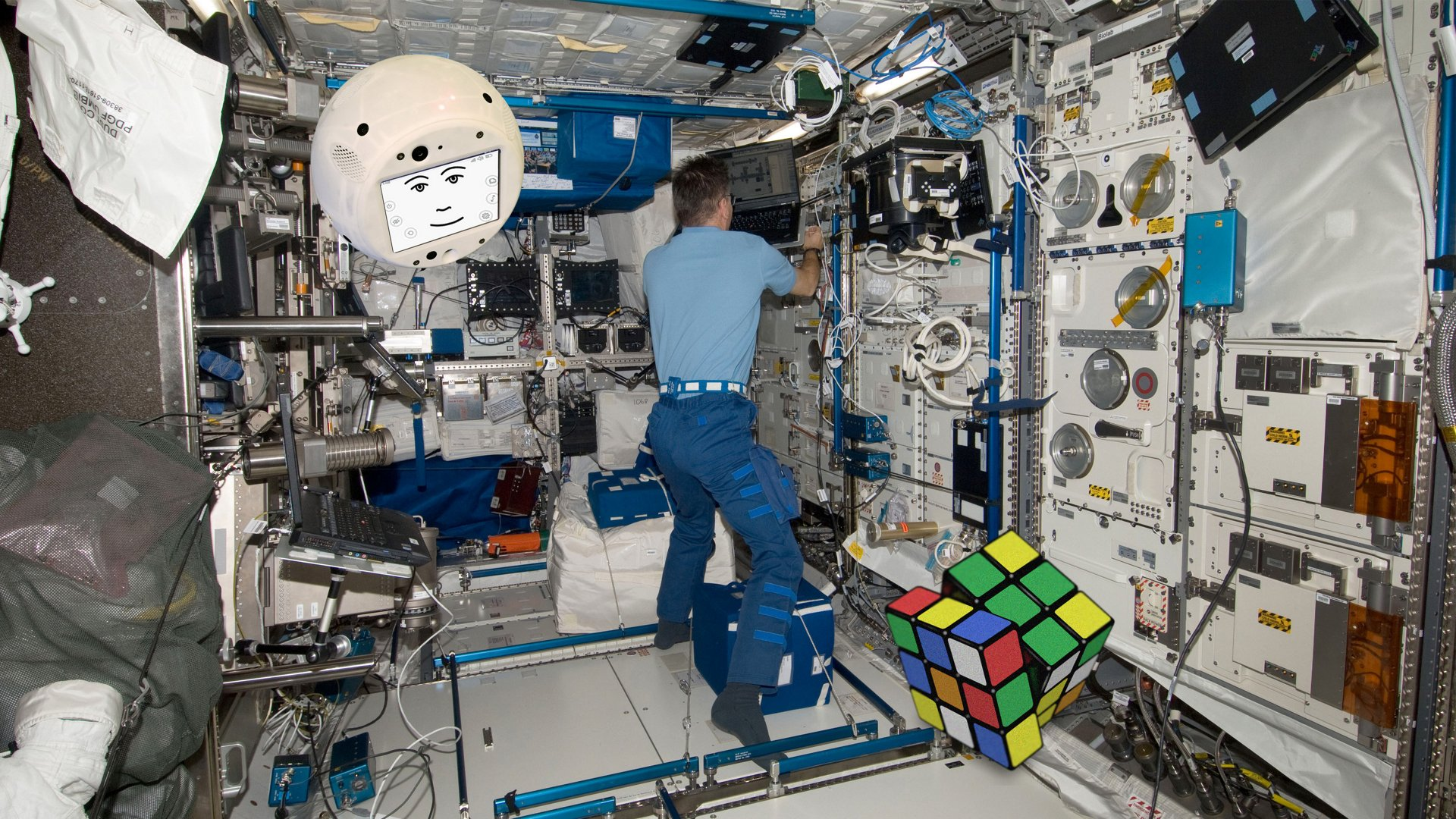
By Aalyia Shaukat, contributing writer
A robot built by Airbus and fitted with IBM’s artificial intelligence (AI) brain called Watson is scheduled to be launched into space in June aboard the International Space Station (ISS) to help facilitate astronauts. The Crew Interactive Mobile Companion (CIMON) will primarily be used to help carry out complex onboard procedures and experiments that often consist of over 100 different steps. Watson has already been trained to recognize Alexander Gerst — the German astronaut that will accompany the robot on the journey to the ISS. Its AI brain has also been pre-programmed to move around the ISS and Columbus Module with ease due to its speech- and vision-learning algorithms along with construction plans of both space vehicles.
Not only will the CIMON provide some much-needed technical support for the crew of the ISS but possibly even some camaraderie with a friendly digital voice and a face that mimics Tom Hanks’s volleyball compadre, “Wilson,” from the movie “Cast Away .” Conveniently, Watson’s internal air-propulsion system will allow for a more intentional floating in space as opposed to poor Wilson’s helpless drifting on ocean currents. “CIMON will be the first AI-based mission- and flight-assistance system,” says Airbus Head of Microgravity Manfred Jaumann. The robot is also a manufacturing feat in that the entire plastic and metallic structure is 3D-printed.
This is just part of the partnership between IBM and Airbus. The two corporate giants are already working together to bring IoT to daily fleet operations in Airbus Smarter Fleet Solutions (ASFS). The platform will utilize the cognitive capabilities of Watson to track and optimize the fueling, maintenance, and operations of the Airbus aircraft. The CIMON launch also comes two years after the $200 million IBM Watson Group investment in the Munich-based IoT center that is actively developing IoT solutions in industrial, aeronautical, and medical applications.
As stated in IBM’s THINK blog : “We predict that assistance systems of this kind also have a bright future right here on earth, such as in hospitals or to support nursing care.” Some of the CIMON’s “mental” resources will be allocated to developing an emotional intelligence by adjusting itself to the group dynamics of the ISS crew. This is based on the behavioral patterns that emerge from groups working in close proximity for an extended period of time. The CIMON platform presumably leverages some of the new application program interfaces (APIs) based on natural language processing (NLP), machine learning, video and image analytics, and text analytics. The CIMON is just the start of leveraging AI for assistive purposes and optimizing learning algorithms to ultimately support many IoT applications on the home planet.
Advertisement
Learn more about Electronic Products Magazine





